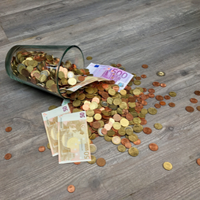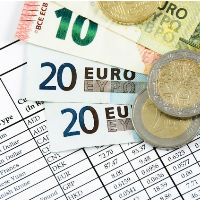5 Tips for Currency Exchange
07-10-2021| treasuryXL | XE |
If you’ve ever travelled abroad, sent a money transfer to family overseas, or made international business payments, you know it can be a pain to exchange currency. Searching banks, online exchange providers, or the streets of an unknown city for the best rates can be time-consuming and costly. And, if you don’t pay attention, foreign exchange costs can add up.
Here are five tips to help you save on currency exchange.
1. Plan Ahead
Find out what the current mid-market exchange rate is with our XE Currency Converter or XE Currency App. Next, compare the rates and fees offered by banks, exchange cambios, and online providers. Once you find the best deal, exchange your funds.
2. Understand Foreign Exchange Costs
Some foreign exchange costs can be transparent and others can be hidden, so it is important to understand what you are paying for. Just like every other company, foreign exchange providers need to make a profit to stay in business. The following are three ways in which providers make money:
- Currency providers may charge a commission, flat fee, handling fee, or minimum charge
- They may include a spread in exchange rates by buying currencies at one rate and selling them at another – with a margin included
- FX providers may also charge transfer fees for wire transfers and other delivery methods
You can calculate your currency exchange costs with our XE Foreign Exchange Charges Calculator. Or, download the XE Currency app for iPhone and use our Rate Advisor to compare your provider’s price to the mid-market rate.
3. Consolidate your Transactions
Since every currency exchange transaction has associated costs, fewer transactions can sometimes result in lower costs. Depending on the type of transaction, you may save money by consolidating several money transfers into one large transaction. Some foreign exchange providers may even offer better rates, or waive commission fees for currency exchanges over a certain amount.
4. Beware of Counterfeits
Every country has its fair share of counterfeit currency – some more than others. To avoid fakes, try to become familiar with the look and feel of the currency. Take note of watermarks and other security features. This can make spotting a fake easier, although it probably won’t be possible to spot a high-level counterfeit. Try to use trusted foreign exchange providers and established currency exchange companies.
5. Bank Overseas for Extended Stays
If you’re moving abroad, studying internationally, or plan to stay in a foreign country for a long period of time, consider sending money and banking overseas. Opening up a local bank account can minimize fees and help keep your money secure. It also makes consolidating your currency transactions much easier and helps mitigate the risk of currency fluctuations.











